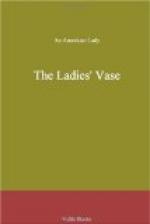Novel-reading strengthens the passions, weakens the virtues, and diminishes the power of self-control. Multitudes may date their ruin from the commencement of this kind of reading; and many more, who have been rescued from the snare, will regret, to the end of their days, its influence in the early formation of their character.
It is, too, a great waste of time. Few will pretend that they read novels with any higher end in view than mere amusement; while, by the strong excitement they produce, they impose a heavier tax on both mind and body than any other species of mental effort. If any thing valuable is to be derived from them, it can be obtained with far less expense of time, and with safety to the morals, from other sources. No Christian, who feels the obligation of “redeeming the time, because the days are evil,” will fail to feel the force of this remark. We have no more right to squander our time and waste our energies in frivolous pursuits, than we have to waste our money in extravagant expenditures. We are as much the stewards of God in respect to the one as the other.
FEMALE ROMANCE.
Most women are inclined to be romantic. This tendency is not confined to the young or to the beautiful, to the intellectual or to the refined. Every woman, capable of strong feeling, is susceptible of romance; and, though its degree may depend on external circumstances, or education, or station, or excitement, it generally exists, and requires only a stimulus for its development.
Romance indeed contributes much to the charm of the female character. Without some degree of it, no woman can be interesting; and, though its excess is a weakness, and one which receives but little indulgence, there is nothing truly generous and disinterested which does not imply its existence. It is that poetry of sentiment which imparts to character or incident something of the beautiful or the sublime; which elevates us to a higher sphere; which gives an ardor to affection, a life to thought, a glow to imagination; and which lends so warm and sunny a hue to the portraiture of life, that it ceases to appear the vulgar, and cold, and dull, and monotonous reality, which common sense alone would make it.
But it is this opposition, between romance and sobriety, that excites so strong a prejudice against the former: it is associated, in the minds of many, with folly alone. A romantic, silly girl, is the object of their contempt; and they so recoil from this personification of sentiment, that their chief object seems to be to divest themselves altogether of its delusion. Life is to them a mere calculation; expediency is their maxim; propriety their rule; profit, ease, or comfort their aim; and they have at least this advantage, that while minds of higher tone and hearts of superior sensibility are often harassed and wounded, and even withered, in their passage through life, they proceed




